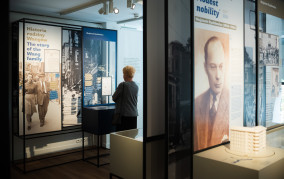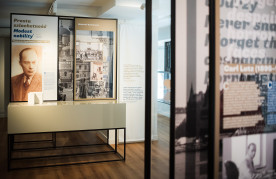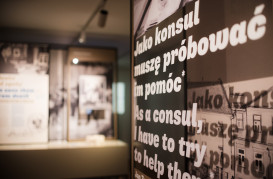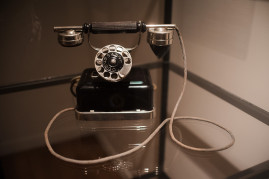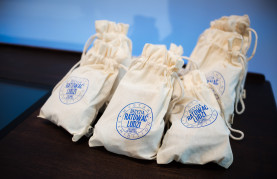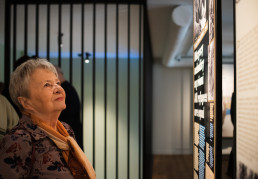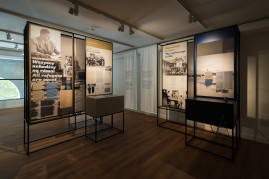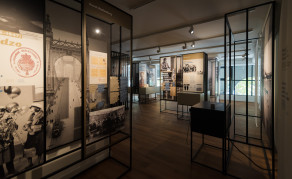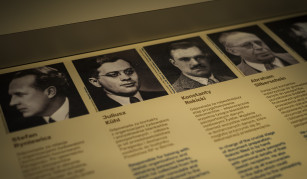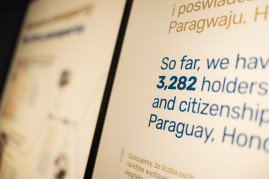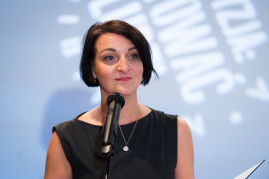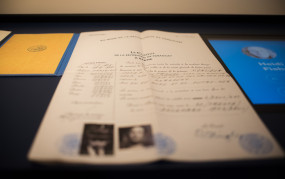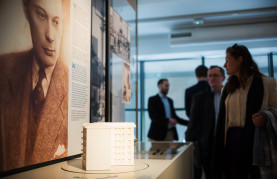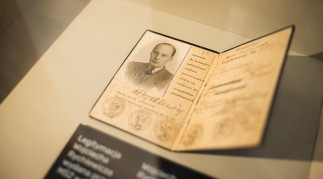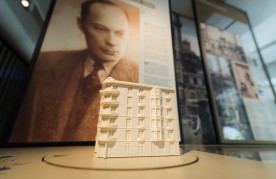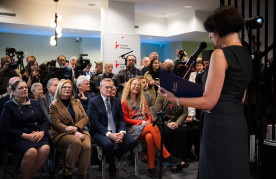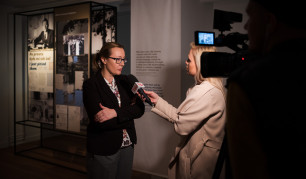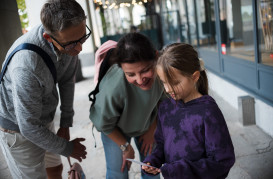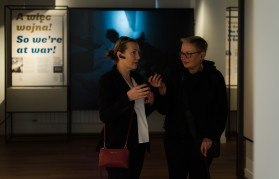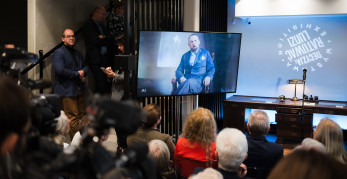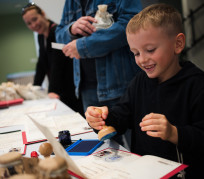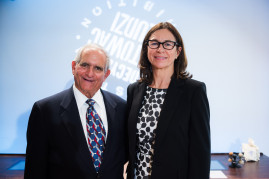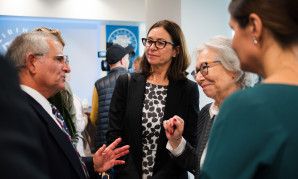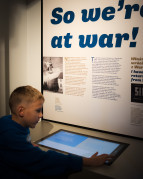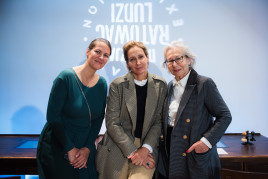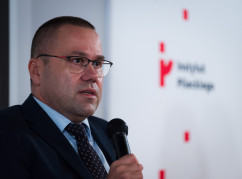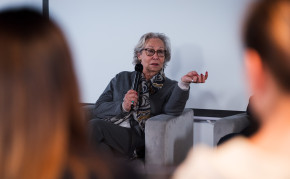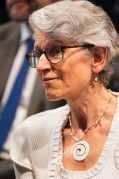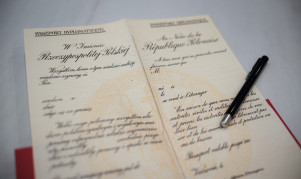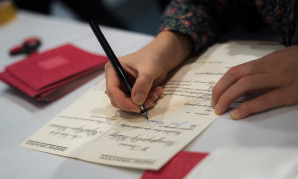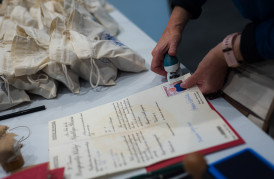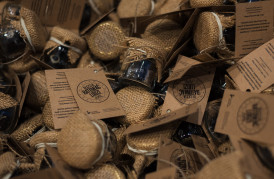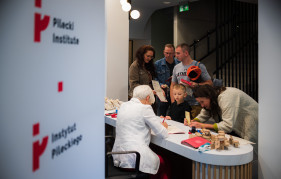An exceptional exhibition on the Ładoś Group in the new “DeBeK” gallery of the Pilecki Institute at 11 Krakowskie Przedmieście Street - Instytut Pileckiego
16.10.2023 (Mon)
An exceptional exhibition on the Ładoś Group in the new “DeBeK” gallery of the Pilecki Institute at 11 Krakowskie Przedmieście Street - Instytut Pileckiego
It is the first exhibition of this scale devoted to the activities of Polish diplomats who strove to rescue Jews in occupied Poland and other European countries during World War II.
An exceptional exhibition on the Ładoś Group, “The Choice to Save Lives”, is currently at display in “DeBeK” – the new exhibition space of the Pilecki Institute at 11 Krakowskie Przedmieście Street in Warsaw.
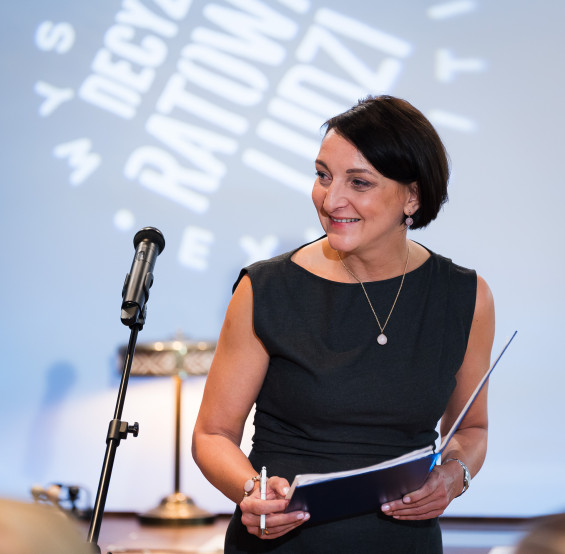
“This exhibition was prepared on the basis of new archival and scientific research. It is devoted to the Ładoś List and the activities of Polish diplomats during World War II. This story helps us realize what powerful tools are at disposal of the state. Individuals could rescue individuals, but an organized group of diplomats was able to save thousands of people,” as Prof. Magdalena Gawin, director of the Pilecki Institute, said about the exhibition “The Choice to Save Lives”.
The exhibition also presents the stories of other Polish diplomats who were active before and throughout World War II – Feliks Chiczewski, Wojciech Rychlewicz, Tadeusz Romer and Henryk Sławik. The exhibition also features the stories of foreign diplomats whose activities – either through the persons they aided or the places where they worked – became intertwined with the fates of Polish heroes. These include Chiune Sugihara, Jan Zwartendijk, Carl Lutz and Raoul Wallenberg. Hand-written notes, correspondence, testimonies, source materials which helped determine the identity of the Jews who received passports that increased their holders’ chances to survive the Holocaust, as well as private items obtained abroad from the relatives of the participants of the events from 80 years ago – all of this was made available to the public for the very first time.
Years later, research has shed light on the scale, significance and unique character of the actions undertaken by the Ładoś Group, which saved citizens of not only Poland, but also other countries (including Germany, Austria, the Netherlands and prewar Czechoslovakia). Such broad scale of the operation would not be possible without a close cooperation between Polish diplomats and Jewish communities. The involvement of the latter is what set the Ładoś Group apart from other aid operations organized by diplomats from various countries during the Holocaust.
“The Ładoś List” is supplemented on an ongoing basis. The families of the survivors from all over the world reach out to the Pilecki Institute and share their stories, thus adding new names to the list.
Gala opening of the exhibition
“For a very long time, this has been a dead spot. I am glad that now it is such an open and welcoming space for all residents of Warsaw to enjoy. We are truly happy that ‘DeBeK’ is finally open,” admitted Prof. Magdalena Gawin, director of the Pilecki Institute.
The opening of the exhibition was attended by relatives of the heroic diplomats and the Jews whom they had helped survive the Holocaust. A speech was delivered by Anna Whitty MBE, granddaughter of Wojciech Rychlewicz, the Polish Ambassador to Turkey who saved many Jews by issuing them with false birth certificates. She emphasized that her grandfather’s activities inspired her to take up social work in Great Britain herself. “This is not about good thoughts and words, but actions. We live in a world of media that are focused on words. What mattered for Wojciech Rychlewicz were actions,” she stressed. She added that her grandfather “did good without expecting applause or recognition.”
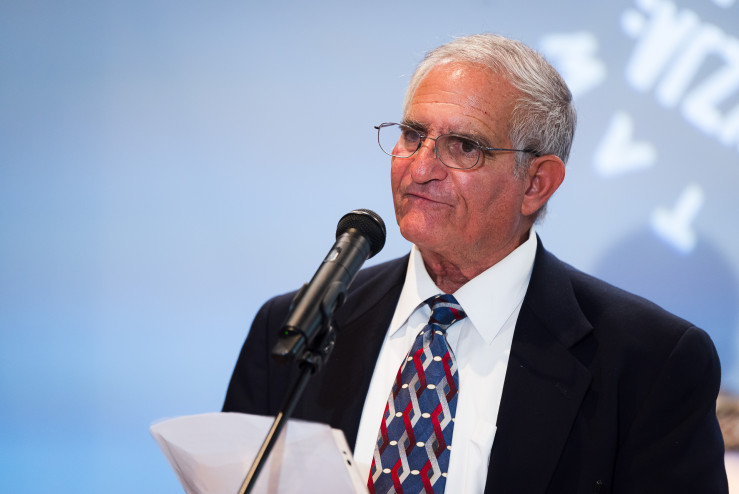
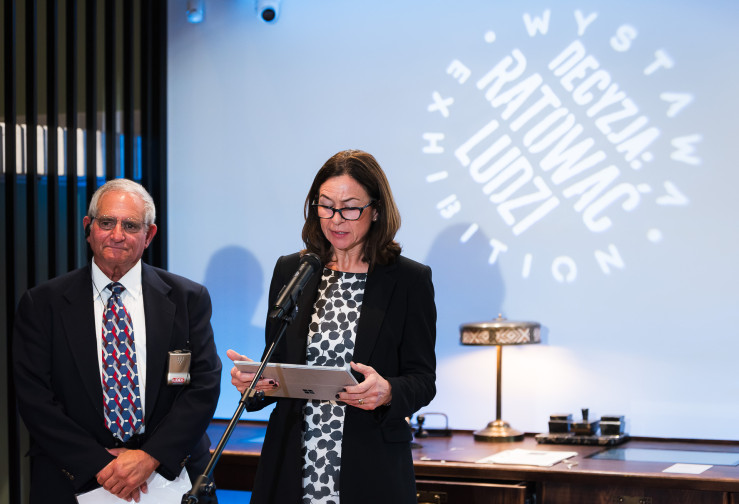
Anna Whitty MBE, granddaughter of Wojciech Rychlewicz, the Polish Ambassador to Turkey Among the guests at the opening were Arlette Liwer-Stuip (a descendant of Jews who received help from Chiune Sugihara, Jan Zwartendijk and Tadeusz Romer), Anna Whitty MBE (granddaughter of Wojciech Rychlewicz, the Polish Ambassador to Turkey), Leonie de Picciotto (the daughter of people saved from the Holocaust thanks to the passport operation of the Ładoś Group), Wanda and Miriam Taylor (granddaughters of Tadeusz Romer, a diplomat; they live in Canada, but were brought up knowing their grandfather’s story) and Sebastian Ładoś (grandson of Aleksander Ładoś).
Dom Bez Kantów, “DeBeK” gallery,
11 Krakowskie Przedmieście Street
Open: Tuesday - Sunday from 10 am to 6 pm, Thursday from 10 am to 8 pm.
